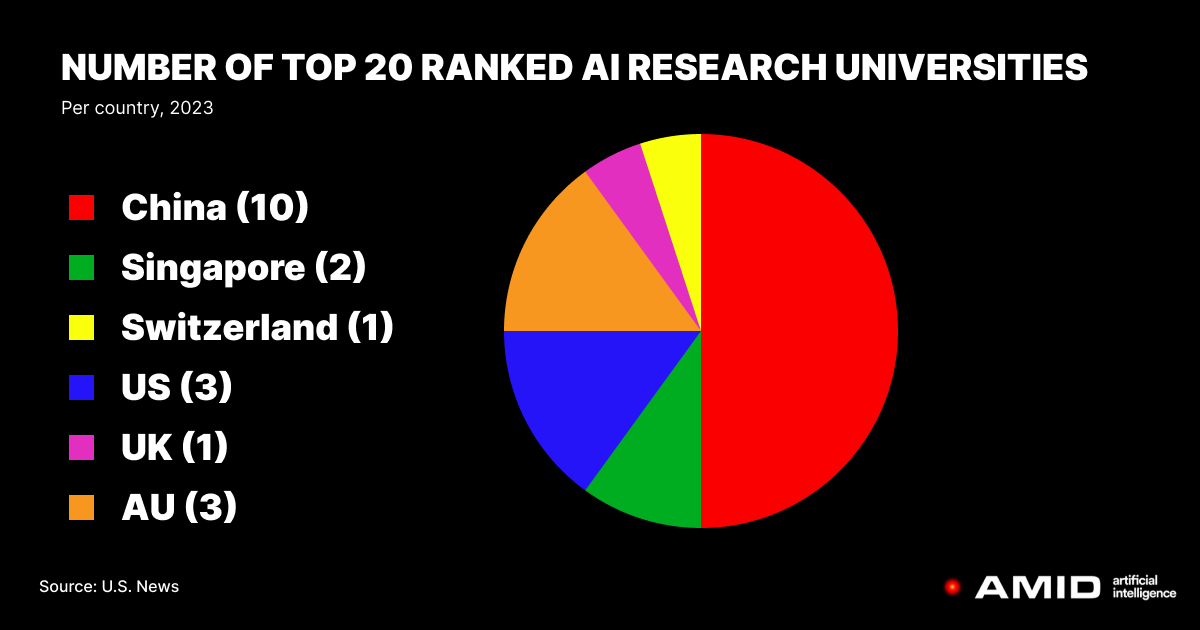Welcome back to The AI China Report. This week we’re covering the DoD report on China’s military, AI patent filings, and latest on US-China sanctions.
QUOTE OF THE WEEK
“I’m going to take executive action, and my administration is going to continue to work with bipartisan legislation so America leads the way toward responsible AI innovation.”
- President Biden on next week’s expected AI executive order
ONE BIG STORY: CHINA’S INTELLIGENTIZED WARFARE
The Department of Defense (DoD) just released their annual report on military developments in the China, calling it the only competitor to the US with the intent and capacity to reshape international order.
DoD requests for bilateral defense engagements and communications to their Chinese counterparts were denied at multiple levels - showing an unwillingness to collaborate by China.
Technology and AI was front and center in the new report. China is rapidly expanding their usage of AI at every level of warfare, as they see future conflicts will primarily be fought with information in what they call “intelligentized warfare”.
The report warns of a new concept being employed by China’s People’s Liberation Army (PLA) known as “Multi-Domain Precision Warfare” (MDPW) that aims to leverage AI and big data to quickly identify vulnerabilities in US systems and use “multiple domains” to launch precision strikes directly on those vulnerabilities. For example, the ability to recognize a cyber vulnerability in a natural gas pipeline in the US and knock it offline for potentially weeks at a time.
The Chinese military is heavily investing in domestic hardware companies, especially the semiconductor chip industry, to reduce reliance on foreign suppliers which they see as one of their biggest vulnerabilities. China has also invested over $1B to build a national quantum computing lab, the biggest investment in quantum by a government to date, to help further their technology capabilities.
While the Chinese government has long been known to closely monitor and collaborate with leaders in their tech industry, China is actively working to increase the proportion of private companies contributing to military projects. The DoD report outlined key formal initiatives between China’s military and domestic private companies that promotes R&D collaboration and domain resource sharing. This means outside (US) investments in China’s tech sector will almost certainly be helping to fund new technologies that will be weaponized by the Chinese military.
With the latest DoD report, it's clear that China is intensively focused on AI to fortify its military prowess and position itself as the world’s leading military force. The increasing collaboration between China's private tech sector and its military raises concerns for international stakeholders, especially for the U.S., which needs to be cautious about its technological investments in China.
NEWS ROUNDUP
China is the global leader in AI patents. Chinese institutions applied for 29,853 AI-related patents in 2022 and accounted for more than 40% of global AI patent applications, according to data that the World Intellectual Property Organization provided to Bloomberg News. That’s almost 80% more than US filings, which shrank 5.5% YoY. (Bloomberg)
Following the last week’s new sanctions on semiconductor exports to China, the US ordered Nvidia to halt shipments of A800 and H800 chips, which are the less-powerful chips Nvidia created specifically to sell to China to comply with last year’s sanctions. The US is requiring chipmakers to apply and receive licenses for each Chinese company they hope to sell chips to, a vetting process the US hopes will slow down Chinese institutions in the AI arms race. (Nikkei Asia)
China accepted the U.K.’s invitation to its global artificial intelligence summit, which kicks off next week. The invitation drew criticism from some political leaders and security experts over China’s history of espionage - especially around technology. White House officials backed the decision, saying that including China is important to promote an open dialogue on the global issue of AI policy and safety. (WP)
The U.N. unveiled its AI advisory body which includes 39 academics, industry leaders, and government officials from 33 countries, including the US and China, in an effort to boost collaboration between all global leaders in assessing risks of AI. (Nikkei Asia)
Leading US AI startup ScaleAI, founded by billionaire 26-year old CEO Alexandr Wang, has been positioning itself as a key vendor for US military agencies to better analyze large amounts of data to identify vulnerabilities and opportunities. Last year they scored a $250M contract with the DoD for their AI chatbot, Donovan, that helps summarize data and provide insights to key military decision makers. (WP)
DATA TO KNOW
Know someone who should be in the know about AI and China? Share The AI China Brief 🇨🇳 with your friends and colleagues!
Have feedback on how we can improve? Want to discuss this issue’s content? We’d love to hear from you in comments below!





